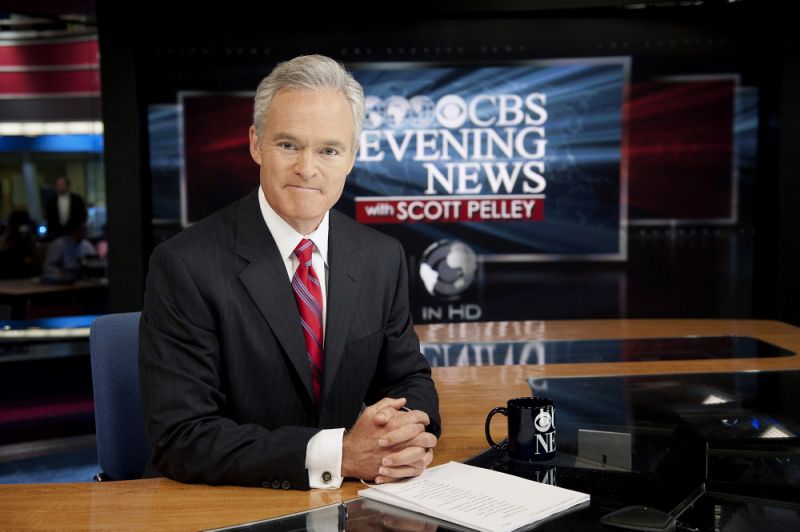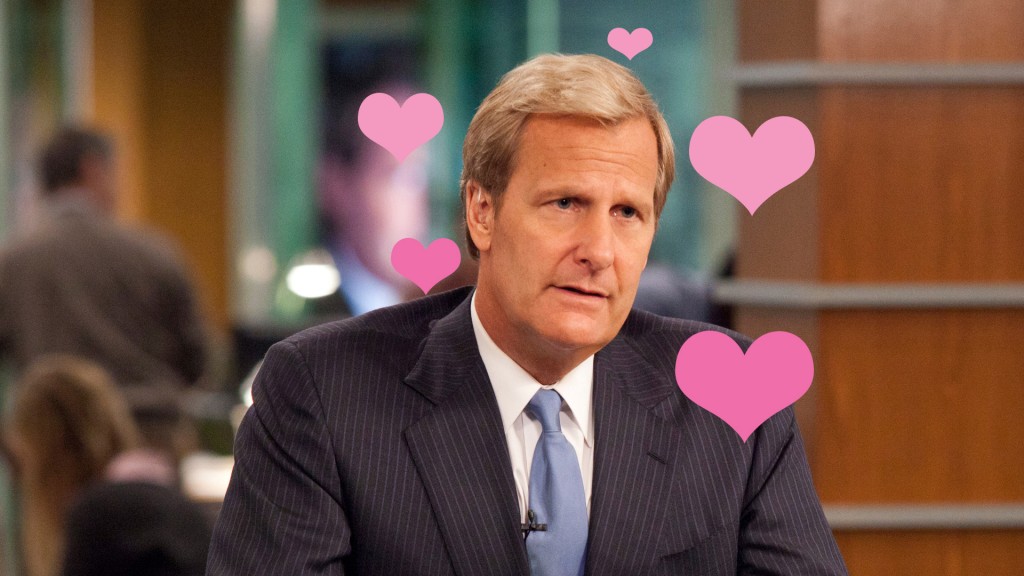
I titled this photo when I saved it after a Leslie Knope quote, “you rule-breaking moth” because of how much I have admired Scott Pelley, even before he took over the CBS Evening News. However, the irony lies in the idea that we need to stick to our journalistic principles of finishing the race to the story without mistakes, while not worrying if we’re going to come in first with them. Photo courtesy of Yahoo (a little awkwardness here, when we consider Katie Couric…).
Oh, how perfectly this blog post assignment flows directly from last week’s post about “The Newsroom.” As I talk about journalistic integrity the show has taught me, I sometimes forget one thing: I can learn the same things by watching the news as well. I just need to listen a little closer, and consider the presentation a little bit more.
What I’m about to say is going to need a little bit of context, so here you go. Is the video a little pixelated to the point where I had to look away at times? Yes. But what’s really important here is the message about our current state of journalism ethics.
I agree with Pelley wholeheartedly on what he says about the current state of journalism, and how we rush to fan the flames of gossip and rumors, while our own house is burning, as he says.
We’re fighting fire with fire, and then wondering why the American public has lost trust in us. Some of it is because the American public wants to hear news commentary that reiterates and confirms their own opinions, instead of prompting them to think outside of what they’re being told. As frustrating as that is, we can’t change the minds of those who have closed them and buried the key deeply inside their own egos. There’s no fix to that.
What we are doing, when we forego confirming information and running with the first piece of information we get, is we are alienating the viewers with open minds who just want the facts of all sides of the story.
Pelley says the medium we publish our work on should not change the integrity we write it with. A couple things have led to this downfall, and it has to do with the need to be first to report a story, and the idea that social media is all we need as a first and second confirmation on our stories.
I agree with Pelley in saying these two ideas are wrong, and here’s why:
The need to be first
This is especially where my commentary from last week’s “The Newsroom” really comes into play.
In the episode “Fix You,” one of the graphics designers in the control room has Arizona Sen. Gabby Giffords declared dead, as corporate executives are begging the news team to report it first, despite NPR already declaring it.
Will refuses, saying a doctor pronounces someone dead, not the media – and they were right. You can feel the relieved look of the graphics designer as he removes the “2011” from alongside her birth year.
Pelley says the need to be right comes from our own egos and the competitive game news networks play with one another, which I agree with. On the other hand, I wonder if we would have that same need to be first to break a story all the time, should we not have the company executives, who are more concerned with ratings than our journalistic principles of being right, telling us that we need to be?
It’s a combination of both, in my opinion, because company executives threaten the jobs of journalists, editors, executive producers, anyone and everyone, through the ratings.
It’s ratings-driven content, versus the quality of your content driving ratings.
Because, as Pelley said, no one will remember if you were first, but they’re never going to forget that you were wrong. Journalists need to report the news, and forget about the ratings for those broadcasts – and their business execs at the top need to do the same.
Social media
I love my social media as much as anyone, and I love live-tweeting events I attend. But should I base my stories off of what I’m saying, without taking other perspectives into consideration to balance out the story? Absolutely not.
This is me, as an aspiring journalist, saying each and every journalist will always have the slightest trace of bias in their reporting, if we’re only using ourselves as a source through social media. It’s why we balance things out with multiple perspectives and verify/attribute every piece of information we get, or so we should.
Pelley says that in the rush to be first, we take what we find on social media and run it, with no verification or confirmation. It’s what makes the concept of citizen journalism so dangerous, on the flip-side of the coin of it being helpful.
It’s only helpful when we can confirm things, but who has time to do that when you’re rushing to be first?
I also find myself agreeing with Scott Pelley in the idea that social media is gossip, and has no place in a newsroom if there’s no trace of verification behind it.
I take it a step farther than Pelley by saying reporting anything trending on social media that doesn’t have a direct impact on a portion of your viewers doesn’t belong in the newsroom either. Does the trend of #BlackLivesMatter belong? Yes, since the riots are taking over Ferguson. Does a trending video of two twins laughing at one another have a right to be on the news, just because people think it’s cute?
I’ve told the station director at UWW-TV that I don’t want to see anything trending from Twitter or Facebook on that show anymore, for that reason. Those on the show already force their show to suffer from a lack of original reporting from the writers as it is, why add in a topic talking about a “possessed baby” standing on the edge of its crib?
There’s no integrity in that, and you know for a fact that Dan Rather and Walter Cronkite would have passed on it.
A final note, on watching Pelley speak
I’ve admired Pelley for a while – hell, I even wrote on my Facebook page that we would be “bros” when sharing a 60 Minutes Overtime video about how his first love was still photography.
I love listening to professionals speak, because they’ll dig deep into their roots, and it allows me a measuring stick to align my own beliefs up against.
So thanks for the knowledge, bro.





